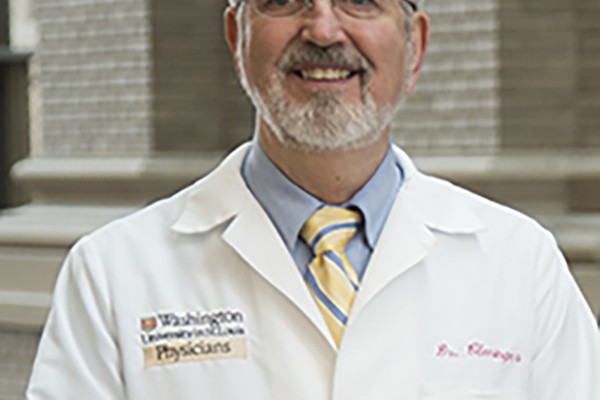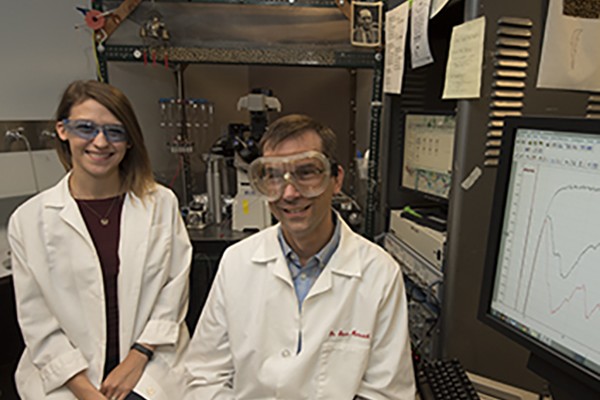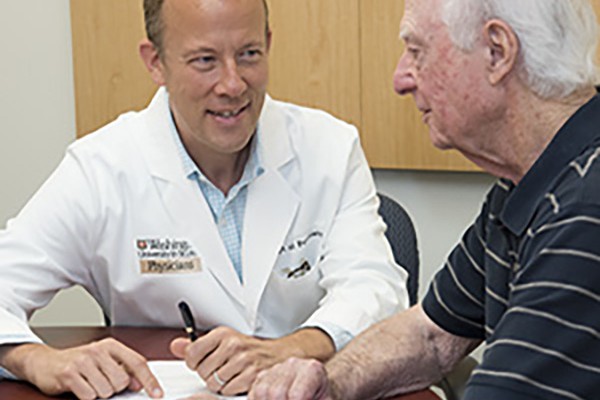Schizophrenia symptoms linked to features of brain’s anatomy
Using advanced brain imaging, researchers have matched certain behavioral symptoms of schizophrenia to features of the brain’s anatomy. The findings, from a research team led by the School of Medicine’s C. Robert Cloninger, MD, PhD, (shown) and Igor Zwir, PhD, could be a step toward improving diagnosis and treatment of schizophrenia.
Randolph to receive NIH director’s Pioneer Award
Gwendalyn J. Randolph, PhD, director of the Division of Immunobiology at the School of Medicine, has been chosen as a 2015 recipient of the NIH Director’s Pioneer Award. The award challenges investigators to develop groundbreaking approaches that have a high impact on a broad area of biomedical or behavioral science. Randolph is one of 13 Pioneer Award winners this year.
Loss of support cells in brain may inhibit neuronal development
Shedding light on possible contributors to autism, schizophrenia and other neuro-psychiatric disorders, School of Medicine researchers have found that a type of support cell in the brain, called an astrocyte, may play a role in the ability of neurons to communicate.
Two-drug combo helps older adults with hard-to-treat depression
More than half of older adults with clinical depression don’t get better when treated with an antidepressant. But results from a multicenter clinical trial that included Washington University School of Medicine in St. Louis indicates that adding a second drug — an antipsychotic medication — to the treatment regimen helps many of those patients.
Study asks whether healthy diet or weight loss makes you live longer
Researchers at Washington University School of Medicine in St. Louis are recruiting volunteers for a study comparing the potential health and longevity benefits of the Mediterranean diet with those of a typical American diet. The study’s aim is to determine whether health and longevity are influenced more by healthy eating or by weight loss.
Combo of 3 antibiotics can kill deadly staph infections
Three antibiotics that, individually, are not effective against a drug-resistant staph infection can kill the deadly pathogen when combined as a trio, according to researchers at Washington University School of Medicine in St. Louis. They have killed the bug — methicillin-resistant Staphylococcus aureus (MRSA) — in test tubes and laboratory mice, and believe the same strategy may work in people.
On Twitter, hookah smoking seen as positive
Positive mentions on Twitter about hookah smoking may promote the assumption that it is less harmful than smoking cigarettes even though the Centers for Disease Control and Prevention reports that hookah smoking has many of the same harmful toxins and carries the same health risks, according to new research at Washington University School of Medicine in St. Louis led by Melissa J. Krauss, seen here with a hookah pipe.
New pharmacy, medical school partnership seeks better, safer medications
St. Louis College of Pharmacy and Washington University School of Medicine in St. Louis are joining forces to find better, safer and more effective ways to use prescription medications to improve health. Researchers from the two institutions are collaborating to create the Center for Clinical Pharmacology. The center’s director will be Evan D. Kharasch, MD, PhD, the Russell D. and Mary B. Shelden Professor of Anesthesiology and professor of biochemistry and molecular biophysics at the School of Medicine.
New strategy to lower blood sugar may help in diabetes treatment
Working in mice, researchers at Washington University School of Medicine in St. Louis led by Brian N. Finck, PhD (left), and Kyle S. McCommis, PhD, showed they could reduce glucose production in the liver and lower blood sugar levels. Their approach — shutting down a liver protein involved in making glucose — may help treat type 2 diabetes.
Reward, aversion behaviors activated through same brain pathways
New research may help explain why drug treatments for addiction and depression don’t work for some patients. The conditions are linked to reward and aversion responses in the brain. And the research suggests that some treatments simultaneously stimulate reward and aversion responses, resulting in a net zero effect.
View More Stories





